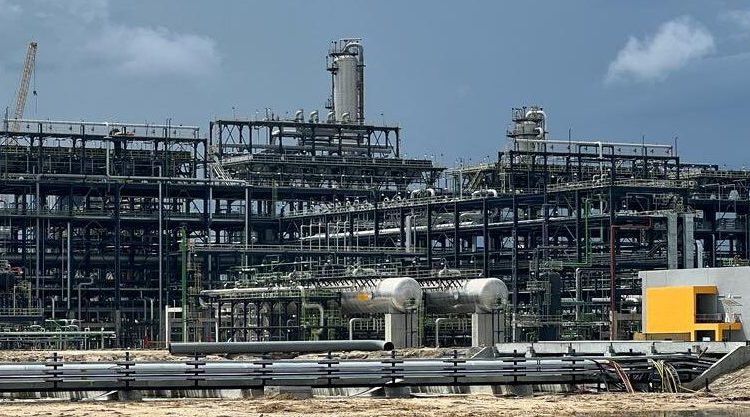Dangote Petroleum Refinery has announced another price drop for diesel and aviation fuel to N940 and N980 per litre, respectively.
The development came just days after the refinery slashed diesel prices to N1,000 per litre.
In a statement issued on Tuesday, the refinery stated that the price change of N940 applies to customers purchasing five million litres or more, while those purchasing one million litres or more will pay N970.
According to the corporation, this is the third substantial fall in diesel prices “in less than three weeks when the product sold at N1,700 to N1,200 and also a further reduction to N1,000 and now N940 for diesel and N980 for aviation fuel per litre”.
Speaking on the new development, Anthony Chiejina, head of communication at Dangote Group, stated that the new price aligns with the company’s commitment to reducing the effects of Nigeria’s economic suffering.
He said:
“I can confirm to you that Dangote Petroleum Refinery has entered a strategic partnership with MRS Oil and Gas stations, to ensure that consumers get to buy fuel at affordable prices, in all their stations be it Lagos or Maiduguri.”
“You can buy as low as 1 litre of diesel at N1,050 and aviation fuel at N980 at all major airports where MRS operates.”
He added that the partnership will be extended to other major oil marketers.
“The essence of this is to ensure that retail buyers do not buy at exorbitant prices.”
“The Dangote Group is committed to ensuring that Nigerians have better welfare and as such, we are happy to announce these new prices and hope that it would go a long way to cushion the effect of economic challenges in the country.”
Reacting to the latest development, Ajayi Kadiri, director-general of the Manufacturers Association of Nigeria (MAN), said the decision “to first crash the price from about N1,750/litre to N1,200/litre, N1,000/litre and now N940 is an eloquent demonstration of the capacity of local industries to positively impact the fortunes of the national economy”.
Kadiri said:
“The trickle-down effect of this singular intervention promises to change the dynamics in the energy cost equation of the country, amid the inadequate and rising cost of electricity.”
He stated that the cut would help to alleviate the country’s high inflation rate and have a significant influence on important sectors such as industrial operations, transportation, logistics, and agriculture.
Kadiri went on to say that the price drop will allow businesses to resume operations.






















Discussion about this post